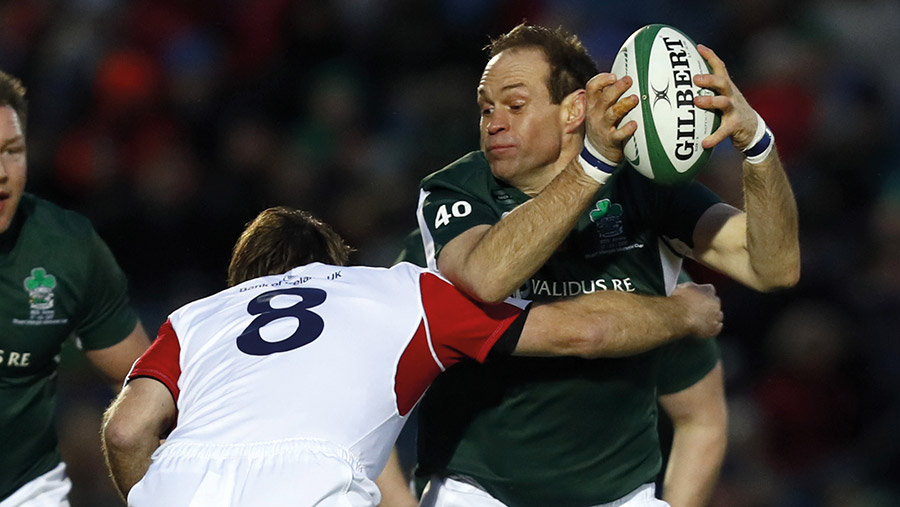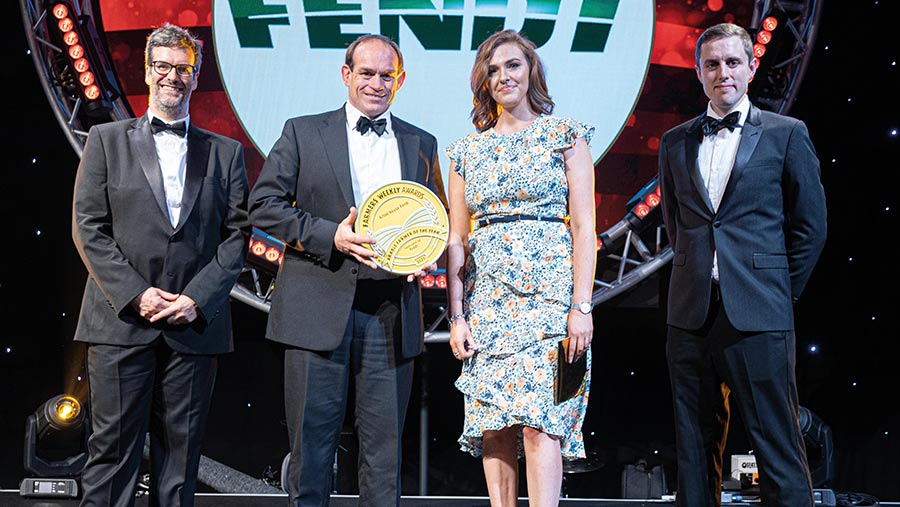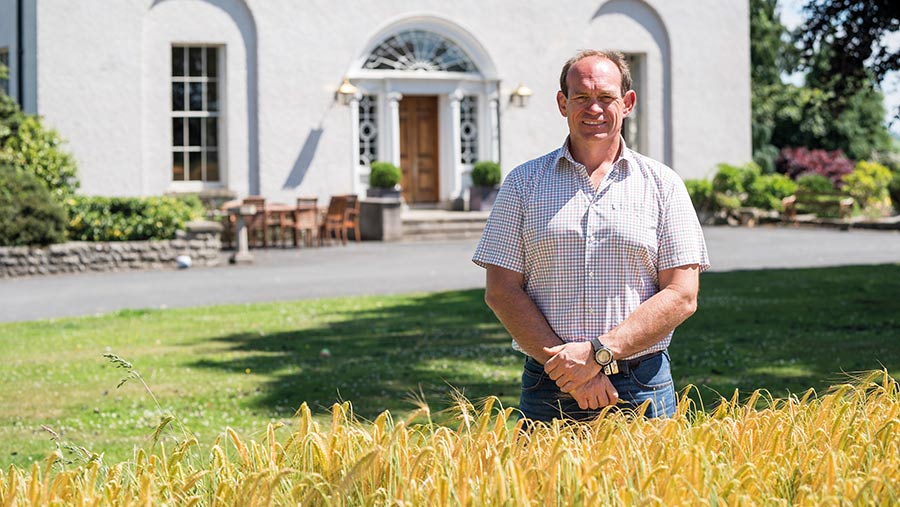Former pro rugby player applies sport philosophy to farm
 Simon Best © Colm O'Neill/Inpho/Shutterstock
Simon Best © Colm O'Neill/Inpho/Shutterstock Former Ireland and Ulster rugby union player Simon Best reveals how lessons learned from a career in professional sport are driving forward the family farm in County Armagh.
He runs 460ha of arable ground and the 60-cow pedigree Aberdeen Angus herd in partnership with his parents and brother.
Here are his five guiding principles.
See also: FW Awards 2021 Arable winner – Simon Best
1. Plan for a sustainable future
The word sustainability is used in many different guises, but for Simon it is rooted in concepts of maintaining and enhancing.
“In the context of professional sport, we always speak about leaving the jersey in a better condition than you found it. From your first game, this is drilled into you,” he says.
“When applied to farming, this phrase really embodies the ethos of our farm – that we do not inherit this land from our ancestors, we borrow it from our children.
“It is what my father has done and my grandfather before him and his father. To me, this is true sustainability.”
2. Create a vision
“Our vision is the guiding principle that underpins what we do,” says Simon.
A challenging period for Ulster when Simon was playing led the team to refocus what their vision was.
“For Ulster, there is a proud history of a loyal following across all communities, and this simple statement allows all involved to communicate what we are about – inspiring the nine counties through rugby.”
For the arable and beef enterprises at Acton House Farm, near Poyntzpass, the vision is to produce high-quality food ingredients in an ethical and sustainable manner.
“I make no apologies for having the word production front and centre; it is what we do in terms of the crops we grow or the beef from our Angus cattle,” Simon says.
“However, we are on a journey to ensure this is done in a manner that is consistent with our purpose of long-term sustainability.
“Communication of what we do to the public, the community, to our customers and wider stakeholders is really important as we, as farmers, enter a period of uncertainty in agriculture, with climate targets and basic payment restructuring.”
3. Know the score
“They say if you can’t measure it, you can’t manage it, and in professional sport everything is measured.
“From what you lift, to how fast you run, to what you’ve had for breakfast – this used to drive me mad at times but now I am leading a business, I can see why this is the case,” says Simon.
Soil analysis and keeping a close eye on yields and margins, for example, is crucial to improve performance and encourage innovation.
“For me the focus on soil health and improvement is the key foundation to ensuring efficient production and long-term sustainability. Knowing the status and health of our soils is imperative.
“Everything we produce is put over the weighbridge and it is really important for me to know what we’ve produced – not only so we know if we’ve made any money or not, but to gauge how successful we are with the use of inputs we’ve used.”
4. Celebrate success
On the rugby pitch, success is easily measured and celebrating it is a big part of team sport.
“You knew where you stood every week in life; did we win or lose on Saturday?
But as players, you never want to lose and there is also significant momentum built on the confidence that comes from gaining success.”
Winning the Farmers Weekly 2021 Arable Farmer of the Year Award gave Simon the chance to reflect on the successes of his family’s business.

Simon Best collecting his FW Award © Telling Photography
He says celebrating success is something all farmers should try to do, even if it is not always easy.
“In farming, or indeed most walks of life, knowing what success looks like can be far less clear.
“For me, one of the attractions of farming is the seasonality and the fact you get a real sense of achievement, or unfortunately sometimes underachievement, at harvest time.”
5. Continue to improve and innovate
Constant improvement and new ideas are crucial to competing at the highest level, Simon explains, with a range of specialist coaches sports psychologists and even “visualisation coaches” encouraging a culture of innovation, collaboration and new ideas within squads.
Simon has applied this mindset to the farm. Over the years, there has been a shift to precision agriculture, more crop analysis to target and reduce inputs, and the farm is now taking part in a European innovation project to establish a verifiable baseline for whole farm carbon emissions.
“This is not just to help improve profitability and reinvestment in the business, but also to ensure long-term sustainability of the land that we farm.”
From rugby to farming

Simon Best © Steffan Hill
Simon Best made 124 appearances for Ulster between 1999 and 2008, and earned 23 caps for Ireland in a four-year spell.
That included appearances at two world cups and securing the country’s first Triple Crown in 19 years, when Ireland beat England, Scotland and Wales in the 2004 season.
His professional career came to a shuddering halt at the 2007 Rugby World Cup, however, when he suffered a mini stroke.
He was diagnosed with an irregular heartbeat and announced his retirement in February 2008.
Simon had studied agriculture at Newcastle University and turned professional when the city’s rugby team, the Falcons, were propelled into the Premiership.
Determined not to be remembered simply as a retired rugby player, Simon threw himself into life at Acton House Farm when his sporting career ended.
“I am very fortunate that farming has always been a passion in my life alongside rugby,” he says.

© Colm O’Neill/Inpho/Shutterstock
